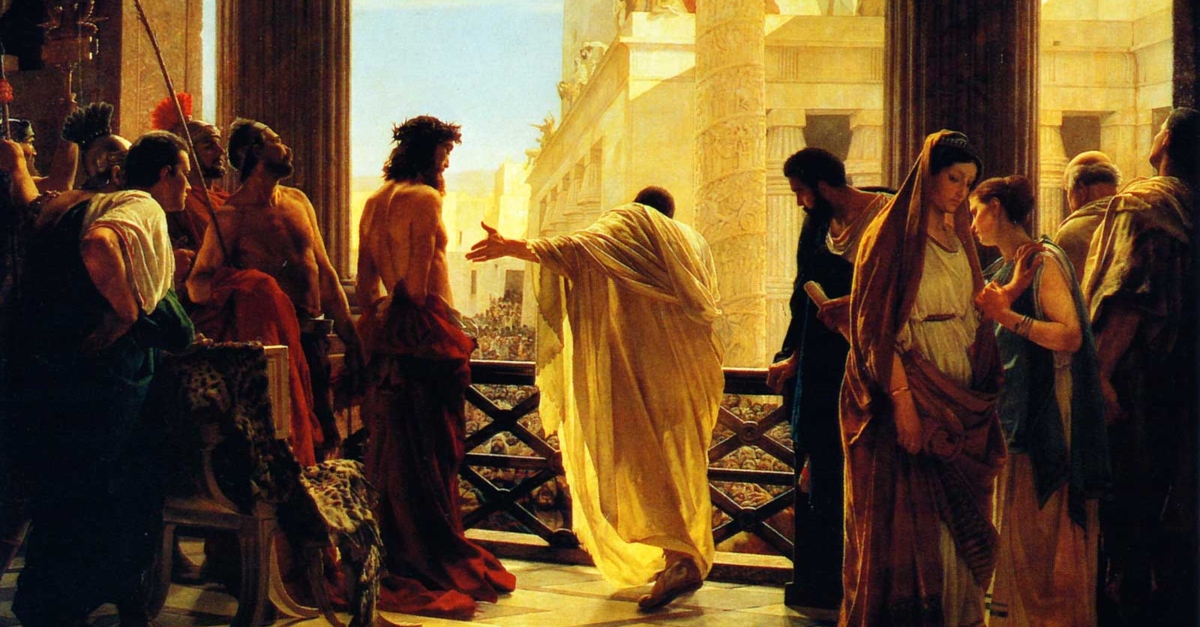
Image from Wikimedia Commons
Interesting article from Bible Study Tools, several useful references as well. Well worth a read.
•

Image from Wikimedia Commons
Interesting article from Bible Study Tools, several useful references as well. Well worth a read.
屠杀 túshā is massacre, so 大屠杀 is the great massacre, or the holocaust.
Captive, in captivity, held in prison.
According to. So 依 whatever = according to whatever.
Kneading bowl. The bowl they use to knead dough for baking bread. They left in a hurry, so no time for the yeast to work through the dough (so unleavened bread).
面盆 miànpén usually means wash basin (the bowl you use when you wash your face in the old days before we have sinks).
To urge. The Egyptians were urging the Israelites to leave. In Hebrew, the verb is khazaq, the same verb used to describe Pharaoh’s heart being hard (unchanging). So the Egyptians wanted the Hebrews to get out, and they’re not going to change their minds about it.
To guard against, to watch out for.
Rule, regulation.
To practice something, as in following something. 践行规则 guīzé Follow the rules.
Lost, can’t find your way.
To cover something, usually with the intention of hiding it from view.
To hide something or someone.
To squeeze, to choke.
World view. The “lens” through which we see everything around us.
Priorities. What we put first or consider as most important.
Concept, idea.
Exhortation, to exhort (to exhort means to strongly encourage someone to do something).
Closely related.
Consistently, as in doing something consistently.
Safe zone, or safe place.
Detail, as in “more detailed description.”
Mid-Autumn Festival. The festival when we eat moon cakes (月饼).
The festival when we eat 粽子 zòngzi, and have dragon boat races.
Usually called the Lantern Festival in English. It’s the annual festival when we eat 汤圆 Tāngyuán. In northern China, 汤圆 is usually called 元宵 yuánxiāo, hence the name of the festival.
Chinese new year. The two Chinese words literally mean spring festival.
Adverb. 副 by itself is something like secondary (as in “vice president”). So 副总统 (zǒngtǒng) means vice president.
Dipping basin, dipping bowl. Like a small pail or bucket that we might use today.
蘸 by itself means to dip.
A sacrifice. As in sacrificing to God.
A promise, to promise.
Not allow, won’t permit.
容 by itself can mean allow, permit, tolerate, etc.
Hyssop.
(Oxford Dictionary)
To use interchangeably, can be substituted one for another.
互换 means exchange, swap.
使用 means to use, to make use of.
Mundane, the usual.
Focus, main point.
To ensure, make sure.
Compromise, to compromise.
Clarification, to clarify.
To tolerate.
The nature of something, the characteristic, etc.
Mediator.
Negotiator. See also 中保, 调解人.
By, lean on, rely on, according to.
To add.
Transgressions, sins.
Mediator.
Note that the biblical meaning of mediator is not quite the same as what’s normally understood in English usage.
Army.
To sojourn, to live temporarily at some place. Temporary resident.
Cut off.
Unleavened bread. Bread made without yeast. Pain sans levain. 酵 = leaven, yeast, levure.
Wrath, great anger.
Gershom, the firstborn of Moses. He first appeared in Exo 2:22, and also in the strange incident in Exo 4:24–26, when God wanted to kill Moses, but Moses’ wife Zipporah circumcised Gershom and “applied” it to Moses, saving Moses.
Livestock, like cattle, sheep, etc.
To attack.
To calculate, calculation.
Another (maybe more formal or fancy) way of saying “to speak to” someone, or to give someone a message.
Mortar, the cement-like paste that glues bricks together. Used in construction.
Parsley.
Horseradish. The 2 Chinese word are literally spicy root.
To punish severely.
Regulation, rule or statue (as in law).
Pentacost. The Chinese 五旬 means 50, so does Pentacost, which comes from the Greek word for 50. The is the last of the four spring festivals, the 4th of the seven Festivals of YHWH (see Lev 23). It’s 50 because the feast takes place 50 days after Passover.
In Jewish tradition, the is also the day when God gave them the Ten Commandments at Mount Sinai. For Christians, Pentacost is also the birthday of the church, when the Holy Spirit first came down and filled all the believers who heard Peter’s preaching (Acts 2:1–4) on that Pentacost day after Jesus’ death and resurrection.
Feast of Tabernacles, celebrated in the fall. It’s the final of the seven Festivals of YHWH (see Lev 23). The feast celebrates the Israelites’ days in the wilderness (after they left Egypt), when they lived in tents (tabernacles), when God was with them to bring them to Canaan.
Unleavened bread. So bread made without the use of leaven (yeast). The Chinese term has 3 words: “无 Without,” “酵 leaven or yeast”, and “饼 bread.” So “bread without leaven,” or “bread without yeast.”
Door frame (that’s pretty much the literal meaning of the two Chinese words).
残疾 Disability, deformity. The 无 Wú in front is a negation, so 无残疾 means “no disability” or “no deformity.”
With animals offered to YHWH, it must not have any defects, deformities, etc.
To kill. The CUV uses 击杀 to translate the Hebrew word נכה, where נכה means to strike or to attack, which might or might not involve killing. All modern Chinese translations instead use 惩罚 (Chéngfá, to punish) or 击打 (Jī dǎ, to strike or hit).
Plague. Any epidemic with a high death rate.
To punish.
To pass over something. This is the Hebrew verb that gave us the name Passover.
To corrupt, to ruin, to undermine. In the CUV, 败坏 translates two Hebrew words, אֶֽעֱשֶׂ֥ה שְׁפָטִ֖ים, “do punishment.” So it’s better to translate these Hebrew words as “execute judgement” or “bring judgement.” More modern Chinese translations all use 惩罚 Chéngfá (or 严惩 yánchéng, where 严 means heavy or severe).
Firstborn.
To patrol. In the CUV, 巡行 translates the Hebrew word עָבַרְתִּ֣י, whose original meaning we’re not entirely sure of. The most common translation is “to pass through,” which is used by most English translations.
Passover. The annual event that Jews celebrate every spring. It’s the first of the 7 feasts of YHWH described in Lev 23.
Best understood as a belt. In Exo 12:11, 束带 is used in 腰间束带, which means “a belt around your waist.”
In the original Hebrew, 束 translates חגר, which means “to be girded (dressed),” 带 is added on by the CUV.
Five internal organs. In Chinese, these are the heart, liver, spleen, lungs, and kidneys.
In the CUV, it translates the Hebrew word meaning “inner parts.” More modern Chinese translations use “内脏 Nèizàng,” (which means internal organs or viscera) instead of 五脏.
脏 itself means dirty, as in “肮东西 dirty thing.”
Boiled in water. The Chinese term is “水 water,” “煮 cook.” So literally water-cooked.
Lintel. The horizontal beam (can be wood, stone, etc.) that spans the top of a doorway.
To paint, as in applying some liquid substance to a surface.
Slaughter, to slaughter (usually applied to animals).
Dusk. The time of day when the sun has just set below the horizon.
Next door, neighbour. The Chinese term is made up of the words meaning “separate 隔” and “wall 壁.”
Neighbour.
Fervently, earnestly, sincerely. This is the way James said Elijah prayed, and we can pray the same way.
Hamas, the Islamic terrorist group. The Chinese is a good transliteration of the Arabic acryonym HMS:
حركة المقاومة الإسلامية Ḥarakah al-Muqāwamah al-ʾIslāmiyyah
Islamic Resistance Movement
Resemble, similar, like.
Effect, efficacy.
大有功效 Very effective.
Jealous, jealousy, to be jealous.
A person’s nature temperament, character, temper.
他与我们是一样性情的人 He is a human like us. (James 5:17)
Baal. One of the chief gods of the Canaanites. Israelites often turned from YHWH and worshiped Baal along with the Canaanite neighbours.
Envy, envious, to be envious.
Gethsemane. The place where Jesus and his disciples spent their final moments before Jesus was arrested. Jesus prayed three times for God to spare him. See Mark 14:32–42.
Elijah, the famous OT prophet. You can read about him in 1 Kings 17–19.
In Chinese, his name seems very different from English, because English pronunciation of certain letters have changed over the centuries. The original Hebrew name is אֵלִיָּ֫הוּ, which sounds very much like the Chinese pinyin (there’s a “hu” at the end of the name that’s not transliterated in the Chinese version, so yǐ lì yǎ hu).
A feature, a trait, a characteristic.
Envy, envious. To envy or be envious.
Mount Carmel, a mountain range going from the Mediterranean Sea towards the east, at about the same level as the Sea of Galilee. Wikipedia article here.
Asherah, another Canaanite deity. Jezebel supports Asherah. In the story about Elijah in 1 Kings 18:19, it tells us there were 400 prophets of Asherah (along with the 450 prophets of Baal) that got together to have a competition against YHWH’s single prophet, Elijah.
Jezebel, the wife of king Ahab of Israel (an evil king and an evil queen).

Leave a Reply